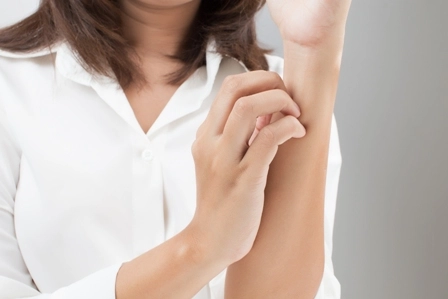Outpatient Facility Coding Alert
Nail Down the Fundamentals of this new Surgical Laparoscopy Code
The 38573 code encompasses washings, biopsies, and more. Prior to January 1, only an unlisted code could describe a far-reaching peritoneoscopy involving biopsy(ies), washings, and resection of omentum and multiple regional lymph nodes. Now you have a new code to capture this type of procedure, which your surgeon might perform for patients with conditions such as ovarian, cervical, or prostate cancer. Read on to learn the possibilities and restrictions that will guide your coding. Put 38573 in Perspective The existing code family begins with 38570 (Laparoscopy, surgical; with retroperitoneal lymph node sampling (biopsy), single or multiple) and proceeds through the following codes that describe ever-more extensive sampling: Now CPT® 2018 adds a new code to the family — 38573 (… with bilateral total pelvic lymphadenectomy and peri-aortic lymph node sampling, peritoneal washings, peritoneal biopsy(ies), omentectomy, and diaphragmatic washings, including diaphragmatic and other serosal biopsy(ies), when performed). This code describes a more extensive procedure than 38572, which includes other nearby tissue biopsy(ies) and/or washing(s). If your surgeon performs a laparoscopic lymphadenectomy in the pelvic and peritoneal region, select one of these codes that best describes the surgeon’s work. Recall anatomy: Peri-aortic lymph nodes are those at or above the aortic and vena cava bifurcation. “A total pelvic lymphadenectomy includes the bilateral external iliac, internal iliac — hypogastric) — and obturator nodes,” says Terri Brame Joy, MBA, CPC, COC, CGSC, CPC-I, director of operations with Encounter Telehealth in Omaha, Nebraska. Based on removal of specific lymph node groups, washings, and other tissue(s), such as serosal or peritoneal biopsy, you should choose the most specific code in the range 38570-38573 for your surgeon’s work. Watch for 52: If the surgeon doesn’t remove lymph nodes bilaterally or resects only some of the pelvic lymph node groups, be prepared to report the appropriate code in the range 38571-38573 with modifier 52 (Reduced services). Know the Outliers If the surgeon performs a peritoneoscopy but excises more (such as ovaries) or less (such as no lymph nodes), you’ll need to go outside of the 38570-38573 code family to select the proper code. For instance: For a diagnostic peritoneoscopy that doesn’t include lymph-node sampling, report 49320 (Laparoscopy, abdomen, peritoneum, and omentum, diagnostic, with or without collection of specimen(s) by brushing or washing (separate procedure)). Other laparoscopic procedures may focus on excision of a different organ or tissue, and the specimen might include lymph nodes. If your surgeon performs one of these services, you should not additionally report 38573: Distinguish open procedures: You should also not report new code 38573 in addition to or instead of codes that describe similar open excision procedures, such as the following:
Related Articles
Outpatient Facility Coding Alert
- CPT® Coding:
Boost your Colonoscopy/Sigmoidoscopy Coding Skill Set with these Examples
Identify important differences between biopsy and removal via technique. If colonoscopy and sigmoidoscopy coding puzzles [...] - ICD-10 Coding:
Learn the Basics of Hammer Toe Coding Using this Guide
Know rigid or flexible, acquired or congenital, for accurate Dx documentation. It’s a common, and [...] - CPT® Coding:
Nail Down the Fundamentals of this new Surgical Laparoscopy Code
The 38573 code encompasses washings, biopsies, and more. Prior to January 1, only an unlisted [...] - You Be the Coder:
Confirm Bi-Compartmental Synovectomy Before Billing 29881, 29876
Question: I’m working on a claim where the provider performs a right knee chondroplasty, a [...] - Reader Question:
Check with Payer for Polypectomy Via Cold Forceps Approach
Question: How do I code a biopsy and removal of a colon polyp using a [...] - Reader Question:
Know CPT® Guidelines on Reporting Moderate Sedation Administration
Question: I have two patients (over 5 years of age) receiving moderate sedation. One receives [...] - Reader Question:
Assign Fracture Dx to Relevant Surgical Code, Only
Question: We have a patient who underwent an open reduction and internal fixation (ORIF) for [...] - Reader Question:
Remember to Code Separately for PICC, Fluoroscopy
Question: How do I code for a peripherally inserted central venous catheter (PICC) line placement [...] - CPT® Coding:
Boost your Colonoscopy/Sigmoidoscopy Coding Skill Set with these Examples
Identify important differences between biopsy and removal via technique. If colonoscopy and sigmoidoscopy coding puzzles [...] - ICD-10 Coding:
Learn the Basics of Hammer Toe Coding Using this Guide
Know rigid or flexible, acquired or congenital, for accurate Dx documentation. It’s a common, and [...] - CPT® Coding:
Nail Down the Fundamentals of this new Surgical Laparoscopy Code
The 38573 code encompasses washings, biopsies, and more. Prior to January 1, only an unlisted [...] - You Be the Coder:
Confirm Bi-Compartmental Synovectomy Before Billing 29881, 29876
Question: I’m working on a claim where the provider performs a right knee chondroplasty, a [...] - Reader Question:
Check with Payer for Polypectomy Via Cold Forceps Approach
Question: How do I code a biopsy and removal of a colon polyp using a [...] - Reader Question:
Know CPT® Guidelines on Reporting Moderate Sedation Administration
Question: I have two patients (over 5 years of age) receiving moderate sedation. One receives [...] - Reader Question:
Assign Fracture Dx to Relevant Surgical Code, Only
Question: We have a patient who underwent an open reduction and internal fixation (ORIF) for [...] - Reader Question:
Remember to Code Separately for PICC, Fluoroscopy
Question: How do I code for a peripherally inserted central venous catheter (PICC) line placement [...]




-min.webp)